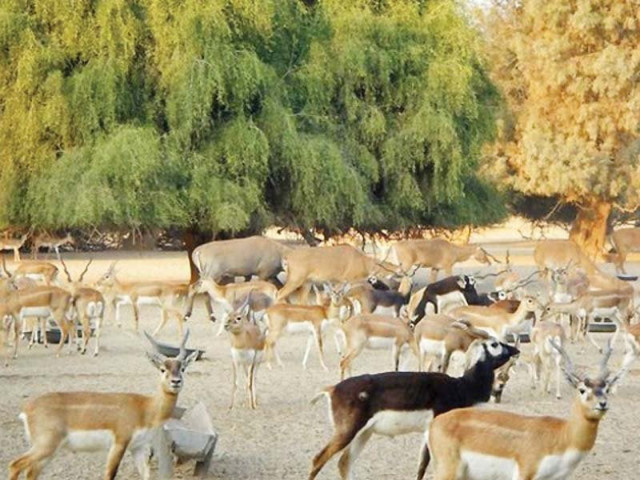WWF recommends action against wildlife open markets
WWF-Pakistan maintains that there are several open markets in major cities of the country

PHOTO: FILE
Findings of the World Health Organistation (WHO) state that bats appear to be the reservoir of the virus. While the intermediate host(s) are yet to be identified, WHO has confirmed COVID-19 as a zoonotic disease.
According to WWF-Pakistan, there are several unregulated wildlife markets in major cities of Pakistan. The organisation stresses on action against them.
A fertile environment
According to WWF-Pakistan Director General Hammad Naqi Khan, unregulated wildlife markets provide a fertile environment conducive to the spread of zoonotic diseases, at times with fatal consequences.
WWF-Pakistan maintains that there are several open markets in major cities of the country, which deal in illegal trade of wildlife, primarily meeting the pet trade demand. Animals on sale in such markets are often poached from their natural habitats and carry the risk of spreading diseases, said Khan.
Meanwhile, WHO reportedly states that at least 60 per cent of all human pathogens are zoonotic in origin and wildlife trade aggravates the spread of such diseases.
Furthermore, unsustainable wildlife trade is stated to be the second-largest threat to biodiversity globally, after habitat destruction.
According to Khan, a majority of wildlife species, including freshwater turtles and Indian pangolins - illegally smuggled from Pakistan - make their way to Asian consumer countries. He was of the view that Pakistan, a source and transit country for illegal consignments of various wildlife species, should take stern measures to curb wildlife poaching and trafficking.
Published in The Express Tribune, April 8th, 2020.



















COMMENTS
Comments are moderated and generally will be posted if they are on-topic and not abusive.
For more information, please see our Comments FAQ